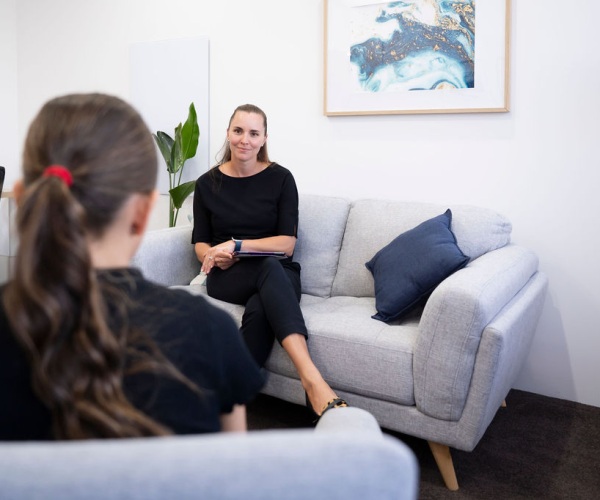Starting therapy for your child can feel like stepping into the unknown. As a parent, you might be wondering what happens in sessions, what your role will be, and how your child’s therapist will support them. At Prosper Health Collective, we believe that understanding the therapy process can ease worries and help you feel more confident in supporting your child’s journey.
Therapy: A Team Effort
Therapy is a structured but flexible process designed to help children develop skills, manage challenges, and build confidence. It works best when parents, children, and therapists work together as a team. Your child’s progress will be supported not only by what happens in the therapy room but also by the encouragement and practice they receive at home.
Your Role as a Parent
Parents play an essential role in the therapy process and your involvement can make a big difference to your child’s progress. Your support may involve:
- Sharing relevant information – Let your child’s therapist know about changes at home or school, successes, and challenges. These details can help tailor the sessions to your child’s needs.
- Supporting practice at home – Your child may be given activities, strategies, or skills to try between sessions. Encouraging and praising their efforts can help these new skills stick.
- Attending sessions when needed – Some sessions may involve you directly, especially when strategies require your support or when progress is reviewed.
- Being patient – Therapy is a process, and progress may happen in small steps. Setbacks are normal and part of learning.
- Showing self-compassion – Supporting a child in therapy can sometimes be emotional for parents too. It’s okay to acknowledge your own feelings along the way.
Your Child’s Therapist’s Role
At PHC, our psychologists work with children in a warm, non-judgemental, and supportive way. While you know your child best, our role is to help guide them in developing strategies for emotional, social, and behavioural growth. This includes:
- Listening and understanding – Creating a safe space for your child to share their thoughts and feelings.
- Using evidence-based strategies – Such as Cognitive Behavioural Therapy (CBT), Acceptance and Commitment Therapy (ACT), or play-based approaches, depending on your child’s needs.
- Adapting the approach – Every child is different; we adjust our methods to match their age, personality, and goals.
- Collaborating with you – We may check in with you before or after sessions to share insights, progress, or tips for home.
- Working behind the scenes – Therapists spend time planning sessions, writing notes, and liaising with other professionals (like your child’s school or GP) to provide the best possible support.
What Happens in a Session?
Psychology sessions for children usually last about 50 minutes.
- First session – You and your child will meet the therapist, who will explain things like confidentiality and consent. They’ll ask questions to understand your child’s needs and work with you both to set therapy goals.
- Following sessions often include:
- Check-in – Seeing how your child has been since the last visit.
- Exploring challenges – Using games, activities, or conversation (depending on your child’s age) to work on therapy goals.
- Practising strategies – Teaching and rehearsing skills like emotional regulation, problem-solving, or positive thinking.
- Planning for home – Suggesting ways to apply new skills in everyday life.
Child therapy often involves elements of play as an engaging tool to understand a child’s needs and support their growth. See our Play Therapy Blog for further information on the use of play in therapy.
A Note on Common Misunderstandings
Sometimes parents worry that therapy means something is “wrong” with their child or that the therapist will “fix” everything quickly. In reality, therapy is about building skills over time, often in small, achievable steps. Our Debunking Therapy Myths blog can help you feel reassured about what the process involves.
Taking the First Step
Starting therapy for your child is a proactive and positive decision. While it may feel new at first, you’ll soon see how the process can help your child grow in confidence, resilience, and emotional wellbeing.
At Prosper Health Collective, we value your partnership in this journey. We’re here to guide and support you and your child every step of the way.
